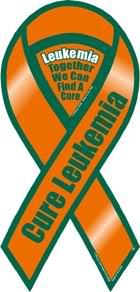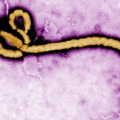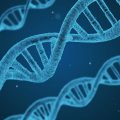Leukemia is a dreaded cancer of the blood or bone marrow. An individual suffering from this disease has abnormal production of blood cells called leucocytes (white blood cells).

Cure Leukemia
Blood cells are produced in the bone marrow, which is 4% of our total body weight. White blood cells carry oxygen and fight diseases, and platelets are essential for blood clotting. All these are suspended in plasma, which is the liquid form of blood, so that they can reach all the parts of the body through blood vessels.
Different Types Of Leukemia
Leukemia can be acute that progresses rapidly or chronic that progresses slowly. There are 2 sub divisions of leukemia according to the type of blood cells that are affected.
Lymphocytic leukemia is where the marrow that produces lymphocytes–white blood cells–is affected. This type of leukemia can be acute or chronic.
Mylogeneous leukemia is where marrow that produces other kind of white blood cells, red blood cells, and platelets are affected.
Chronic lymphocytic leukemia (CLL) is the most common type of leukemia among adults over 55. CLL rarely affects children. Over 60 to 70% of treated patients survive for over 5 years.
Approximately 15,000 adults are affected by leukemia, from which almost 4,300 die of the disease annually. Chemotherapy and radiation are effective treatments with high success rate. Bone marrow transplant is an effective cure, although a suitable match has to be found. However, there may be certain side effects such as infections that are life threatening.
New Treatment for Leukemia
So far, CLL has been considered incurable. However, according to a research paper published in New England Journal of Medicine (NEJM), 3 patients have been cured using a new drug called ibrutinib.
The doctors at the University of Pennsylvania state that among the three patients, two were completely cured, while in one patient, the disease was reduced to 70%. In each patient, approximately 5 pounds of cancerous tissue melted away in a few weeks and did not reappear even after a year.
In the above Penn experiment, the researchers removed particular types of white blood cells from the patient. These cells were then injected with a series of genes that were a modified version of the HIV virus. The genes were designed in a way that they would target the cancerous cells and kill them. After a large batch of genetically engineered white blood cells was grown, they were injected back into the patient.
A similar experiment had been conducted in the past, where the white blood cells killed a few cancer cells but could not sustain themselves. The Penn experiment modified the treatment in a way that the white blood cells multiplied a thousand times more inside the body. As a result, the white blood cells began ruthlessly destroying the cancerous cells in the blood, bone marrow, and lymph tissue.
During the process of hunting and killing cells, the patient would feel aches and pains as it normally happens when the body is fighting an infection. Other side effects were minimal.
The research volunteer, Ludwig, was told by his doctors that he did not have more than a few weeks to live. However, after the success of the experimental treatment, he was overwhelmed by the result and could not thank the doctors enough.
This is a great breakthrough for leukemia but more research needs to be done. The experiment also needs more volunteers and funds to sustain the research body.


 (7 votes, average: 4.14 out of 5)
(7 votes, average: 4.14 out of 5)








